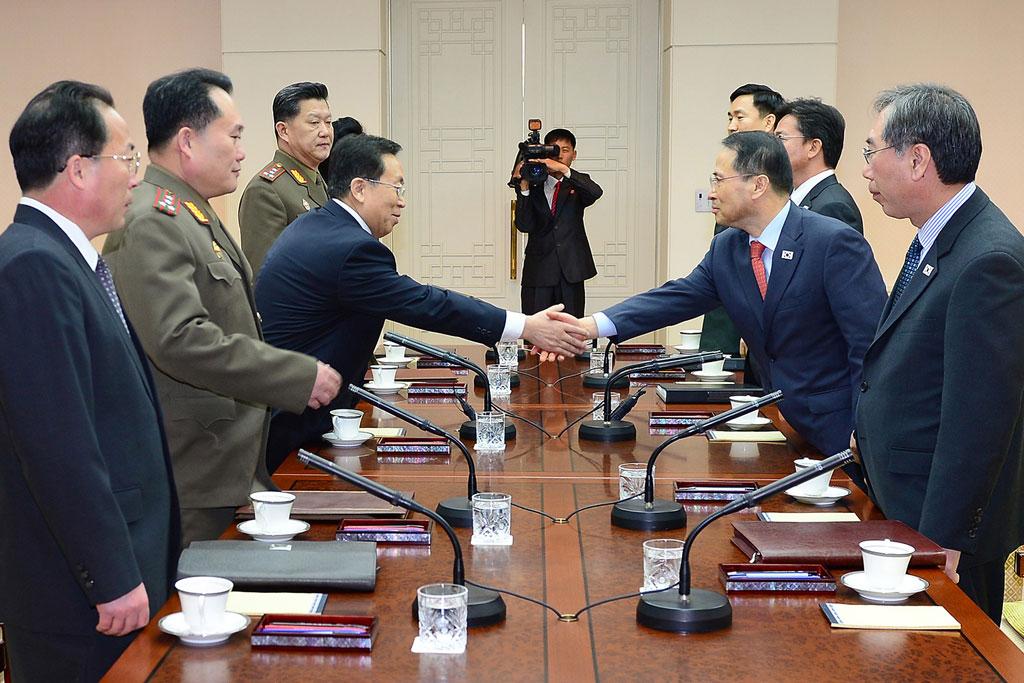North and South Korea hold first high-level talks in seven years
In this handout image provided by South Korean Unification Ministry, Kim Kyou-Hyun (R), the head of South Korea’s high-level delegation shakes hands with his North Korean counterpart Won Tong-Yon (L) before their meeting on Feb. 12, 2014 in Panmunjom, South Korea.
North and South Korea held their first high-level talks in seven years on their armed border on Wednesday, exploring ways to improve ties while the South and the United States geared up for large-scale military drills that have angered Pyongyang.
The meeting was set up with unusual speed and great secrecy at the North's suggestion last week, the latest example of conflicting signals coming from Pyongyang that included an abrupt cancellation of an invitation for a US envoy to visit.
The North is likely to repeat its demand for the South and the United States to scrap the military drills, due to start later this month, but both sides have plenty of incentives to seek a deal that could break their long stalemate.
"For the North, if it comes back with an accomplishment in terms of improved South-North ties, it will mean a better atmosphere for Kim Jong Un to visit China and a justification to pursue high-level talks with the United States," said Cheong Seong-chang, an expert at the Sejong Institute outside Seoul.
Kim is believed to be seeking a visit to China, Pyongyang's greatest ally and main benefactor, to reinforce his legitimacy as leader. In his early 30s, Kim took power when his father died suddenly in 2011.
The South Korean delegation is led by President Park Geun-hye's deputy national security adviser. North Korea has sent the second-highest ranking official in the ruling Workers' Party department charged with ties with the South.
The two sides wrapped up a morning session but there was no word on what was discussed in the closed-door meeting at the Panmunjom truce village on the border.
North looking for concessions?
The meeting comes a week before the two sides are scheduled to hold reunions of family members separated since the 1950-53 Korean War at the Mount Kumgang resort just inside the North, which is considered a major humanitarian event by the South.
However, the North has threatened to cancel the reunions, citing a sortie last week by a nuclear-capable US B-52 bomber near the Korean peninsula.
Pyongyang views the drills as rehearsals for invasion and has repeatedly demanded Seoul call them off, warning at one point of an "unimaginable holocaust" if they went ahead.
Last year's exercises fueled an unusually sharp and protracted surge in military tensions, with Pyongyang threatening a pre-emptive nuclear strike, and nuclear-capable US stealth bombers making dummy runs over the Korean peninsula.
The North is also likely to push for a resumption of regular South Korea tours to its Mount Umgang resort.
The South suspended the tours after a tourist was shot and killed by North Korean soldiers in 2008, and Pyongyang is keen to see the return of what was a lucrative source of hard currency.
The success of the upcoming family reunion event would be key to Seoul considering starting up the tours again.
